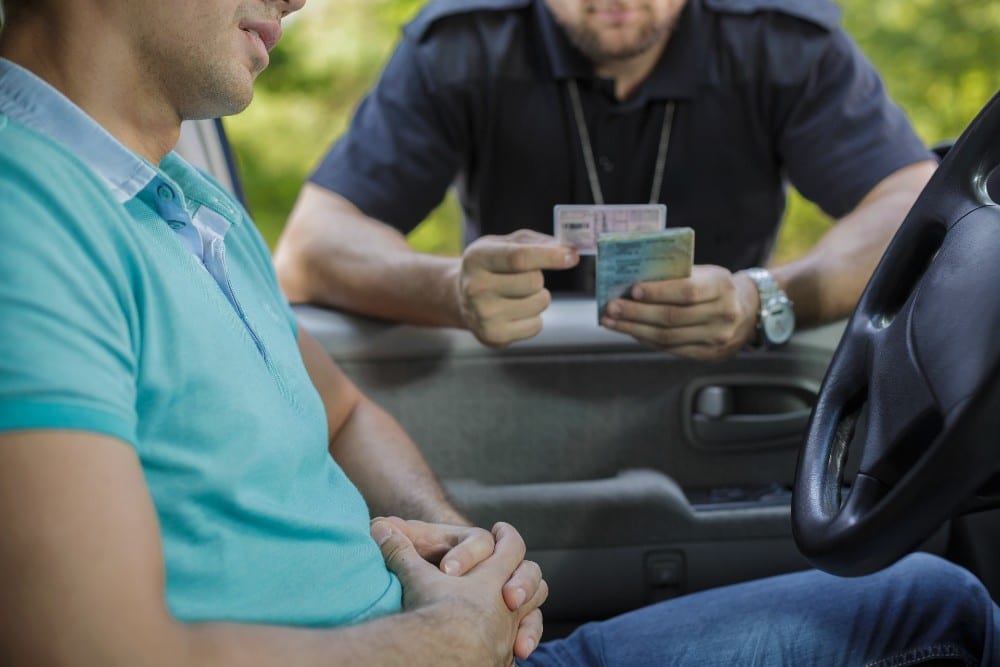
How Do I Tell Police I Have a Gun in My Car During a Traffic Stop in Florida
Traffic stops are a standard part of driving. A police officer may pull you over for speeding, failing to follow traffic signs, driving recklessly, or drinking and driving. Regardless of why they pulled you over, you must remain calm and polite. However, you might feel nervous during a traffic stop if you have a firearm in the vehicle. As long as you are legally allowed to concealed carry, you should have no issue. Continue reading to learn how to tell a cop you have a firearm during an Orlando traffic stop and the various ways they might react.
Suppose the traffic stop ends with you behind bars. In that case, whether it is for a traffic violation or a firearms violation, you will need the assistance of an Orlando criminal defense attorney. They can launch an investigation into the charges against you and aggressively defend you in court.
What to Do When a Florida Cop Pulls You Over
You might be nervous and not know what to expect when a cop pulls you over. Remember, officers also do not know what they are about to encounter, so acting nervous may put them on high alert. In general, the more you do to ensure the officer’s safety, the more you ensure you own. Keep the following tips in mind when a police officer pulls you over:
- Look for a safe spot to pull over
- Slow down and turn on your flashers
- Place the car in park
- Remain calm and roll down your window
- Wait for instructions from the officer
- Be civil
Additionally, know where your driver’s license and insurance cards are. The officer will ask for them, and you do not want to seem like you are fumbling for any documents. The cop may take it as a sign of impairment, which may worsen the situation.
How Do I Tell an Officer I Have a Firearm in My Car?
The way you inform the police officer conducting the traffic stop of the firearm in your possession will dictate how the rest of the encounter will go. You should never say the phrase “I have a gun.” In fact, avoid the word gun altogether. It is a trigger to some officers, and it may escalate the situation. Instead, say, “I have a concealed weapon on me,” and fully describe where it is.
After you notify the officer of your firearm, they will likely choose one of three paths.
- Allow you to keep it during the traffic stop: If the cop allows you to keep the gun in your possession, follow all of their instructions. They may ask for you to keep your hands on the wheel. If they do not, you should keep your hands in the officer’s view the entire time.
- Ask you to remove it from your body: The cop might ask you to exit the vehicle so they may remove the gun from your possession. They will ask you to place your hands on a stationary object, and they will remove it from you. Once the traffic stop is over, they should return it to you.
- Hand the gun to the officer: This is the most complicated of the three options. When the cop asks you to hand over the weapon, ask the officer for specific instructions. When they detail what they expect you to do, repeat their instructions back. As you remove the weapon, narrate what you are doing.
Remember, there is no law in Florida requiring you to inform police officers that you have a firearm in your vehicle unless they specifically ask. However, they will ask in most cases. Even if they do not ask, it is wise to inform them.
What to Do When the Officer Hands Your Gun Back
At the end of the traffic stop, the officer should give you back the firearm as long as there were no issues. When they hand it back to you, be careful to point the weapon in a safe direction. Never put your finger on the trigger. Then, put the gun in a safe location.
Contact a Skilled Orlando Criminal Defense Attorney
If you face criminal or firearm charges following a traffic stop with a gun in the vehicle, contact Fighter Law. We can review the specifics of your case and provide a detailed perspective of your legal options. Our attorneys, led by Board-Certified Attorney Thomas Feiter, dedicate themselves to fighting for our clients. To schedule a free consultation, call (407) 344-4837 or complete our contact form.
Share:
free case evaluation
Fill out the form below for an free evaluation of your case.
Categories
- Birth Injury
- Boating Accidents
- Car Accidents
- Civil Rights
- Criminal Defense
- Cyberstalking
- Divorce
- Dog Bite Injury
- Domestic Abuse Charges
- Domestic Violence
- Drug Charges
- DUI Charges
- Family Law
- Felonies
- Fighter Law Firm
- Firearms
- Firm News
- Guardianship
- Injunction Removal
- Injunctions
- Marketing
- Personal Injury
- Repeat Violence Injunction
- Restraining Order
- Seal and Expunge
- Sex Crimes
- Slip and Fall
- Stalking Injunction
- Theft and Robbery
- Traffic tickets
- Uncategorized

